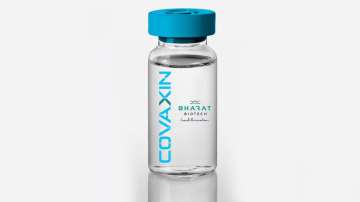No compromise on Covaxin quality, says Bharat Biotech
The vaccine maker stated that as of date, all batches of Covaxin were manufactured and released from its manufacturing facilities at Genome Valley, Hyderabad, which are fully audited and approved by regulatory authorities.

Amid concerns in some quarters about the safety of Covaxin, Bharat Biotech has clarified that its Covid-19 vaccine is totally safe and that it is following uncompromising policy on safety and quality.
The Hyderabad-based company's clarification came in view of certain media and social media reports.
The vaccine maker stated that as of date, all batches of Covaxin were manufactured and released from its manufacturing facilities at Genome Valley, Hyderabad, which are fully audited and approved by regulatory authorities.
"Every batch of Covaxin is subjected to more than 200 quality control tests at our facilities, followed by submission samples to the Central Drugs Laboratory (CDL), Government of India, only based on approval/release by CDL, are batches released commercially," it said.
The company said since early June, manufacturing of Covaxin commenced at its sites at Malur, Karnataka, and Ankleshwar, Gujarat, prior to which engineering batches were also executed to study equipment functionality. "Products manufactured from these facilities will be available for supplies during September. This is based on our 120-day timeline for manufacturing, testing, release, regulatory approvals, and distribution," it said.
The clarification came after Covid task force member N.K. Arora told a television channel that the supply of Covaxin has been slowed down because the first few batches at the company's newest facility in Bengaluru were not of the right quality.
Vaccine manufacturing, testing, and release at Bharat Biotech follow validated, stringent GMP processes which were established over 20 years, with several billion doses of vaccines supplied within India and globally, Bharat Biotech said in a statement.
"Since vaccines are administered to healthy individuals, safety is always our vital, primary criteria and we have an uncompromising policy on safety, and quality, whatsoever. This is evident from the excellent safety contours of Covaxin with an impressive supply of 70 million doses to date. It is emblematic that Bharat Biotech has not sought indemnity from the Government of India for any adverse events from Covaxin."
The vaccine maker reiterated that whole-virion Inactivated Vero Cell vaccines (Covaxin technology platform) are highly complex to manufacture as the critical ingredient is based on live viruses which require highly sophisticated, multiple level containment, and purification methods. Such extensive, high standards of purification naturally lead to significant process losses and low yields resulting in a highly purified and safe vaccine, it said.
It pointed out that the SARS COV2 strains provided under material transfer agreements to Bharat Biotech are also readily available at the ICMR-NIV and accessible to any organisation that wishes to manufacture a similar Covid-19 vaccine.
Vaccinology, vaccine manufacturing, testing, and release is a complex multifactorial science involving inputs from more than 30 scientific and technological disciplines. This is evident from the fact that since the start of the pandemic, only 2 vaccine companies have been able to supply Covid-19 vaccines to the Government of India, it said.
"Bharat Biotech is the only company to develop a vaccine indigenously in India and manufacture it large scale. It has accomplished this in a matter of 15 months, with 10 publications and global recognition for India as an innovator and product developer. Covaxin is the only vaccine to have demonstrated efficacy against the Delta variant in Phase 3 human clinical trials," it said, adding that "fake news and false and misleading narratives result in unintended consequences of creating panic among people, resulting in vaccine hesitancy, extending our country's timelines to return to normalcy and restoration of livelihoods".
It requested media organisations and influencers to use "caution, restraint, detailed analysis in their reportage and their external communication".